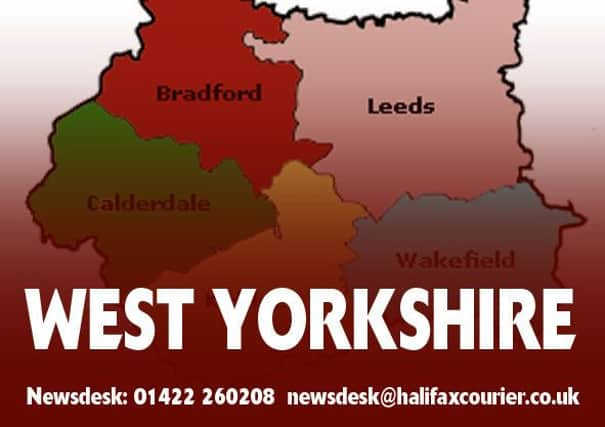Plea to save modern slaves hidden from society’s view


A leading academic says official statistics about the numbers of people forced into miserable working conditions or trafficked into the country to be exploited in the region “hugely understate the scale of the problem”.
A strategy to end the illegal trade of human beings in Leeds was unveiled today after figures showed police in West Yorkshire responded to more human trafficking cases than anywhere else outside London in the first three months of 2014.
Advertisement
Hide AdAdvertisement
Hide AdBut it is feared many victims are being put into slavery, forced labour and sexual exploitation in rural North and East Yorkshire, where the number of remote locations make it easier to hide from the authorities.
In parts of Yorkshire, victims are kept behind closed doors in brothels or cannabis farms, but could also be seen working in nail bars or at car washes.
Human trafficking is said to be the fastest growing crime type in the world, and 566 victims were referred to the Government between January and March nationwide, including one woman trafficked for ‘organ harvesting’.
Data gathered in a major research study last year suggests there could be around 1,000 victims of human trafficking and forced labour in the region, though fewer than 100 are detected each year.
Advertisement
Hide AdAdvertisement
Hide AdIt means that despite several recent high profile convictions and growing numbers of people being referred to the Government by local police forces or charities, many more victims are not getting help.
Gary Craig, Professor of Social Justice at Durham University, who led the study funded by the Joseph Rowntree Foundation, said trafficking for labour exploitation was “every bit as serious a problem” as sexual exploitation.
Professor Craig, a member of North Yorkshire’s police and crime panel, which scrutinises the police commissioner, said: “The problem is almost certainly significantly greater than North Yorkshire Police believe, they require better training. The same would apply to the other first responders.
“With social services, I have been to several local authorities in this region, and it was quite clear that the level of knowledge about trafficking was very poor. People were asking ‘what are we looking for and what do we do when we find it?’.
Advertisement
Hide AdAdvertisement
Hide Ad“Local first responders, the people who are supposed to identify those that are trafficked, need to be in possession of very good guidance, they need to be legally trained, which most of them are not. In North Yorkshire the key first responders, who are supposed to identify those who are trafficked, are the police, social services, and local branches of charities.
“NSPCC and Barnardo’s are better but many first responders are not yet very good and I suspect in North Yorkshire they think it is not much of an issue.”
North Yorkshire Police’s lead officer on human trafficking, Detective Superintendent Steve Smith, said: “The vary nature of the criminality is such that it often happens behind closed doors. It is private and more difficult to get information from people and for the public to have the confidence to realise the reality of what they are seeing.
“We need the public to challenge what they are seeing themselves, ask themselves where do these people come from, what are they doing, how can this be acceptable, what are the conditions they are working in?”
Advertisement
Hide AdAdvertisement
Hide AdThe county’s chief constable Dave Jones said in a recent public meeting: “It is fair to say society in general is just starting to wake up to the significance of this crime, which is considered to be the second most profitable area of criminality after drugs.”
Allan Doherty, director of operations at charity Hope for Justice, was a Divisional Commander for West Yorkshire Police but only realised the extent of human trafficking along the Leeds and Bradford border when he took on his new role. He said: “The crime of human trafficking is a hidden crime unless the police or other agencies proactively go out and look for it. A lot of people don’t understand it or believe it is a big problem.”